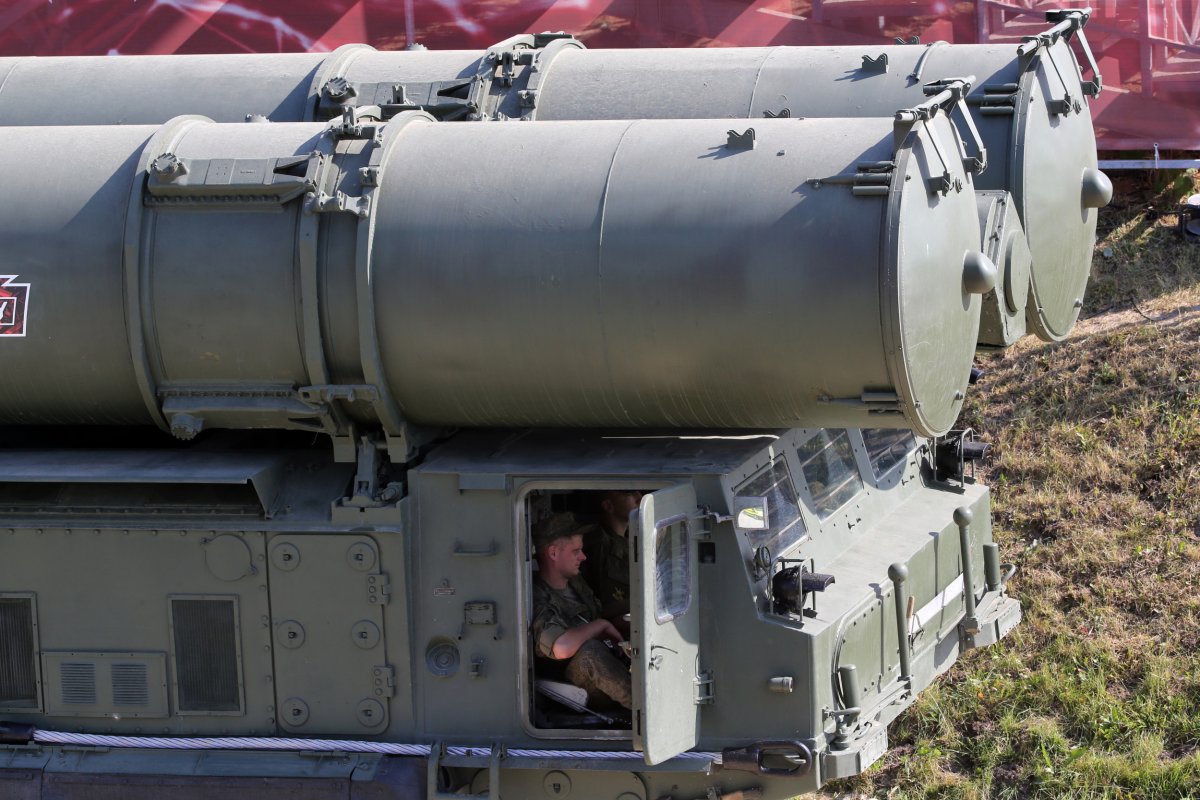Russian forces are resorting to removing nuclear warheads from old cruise missiles to fire at targets in Ukraine, according to the latest Western assessment that points to Moscow's dwindling weapons stocks.
Britain's Ministry of Defense (MOD) said that open-source imagery shows the debris of a 1980s AS-15 Kent air-launched cruise missile, which had apparently been shot down and whose warheads had "probably been substituted for ballast."

The defense officials said that the inert system would still cause damage but was not likely to achieve "reliable effects against intended targets" and could be used by Moscow as decoys to divert Ukrainian air defenses.
"Whatever Russia's intent, this improvisation highlights the level of depletion in Russia's stock of long-range missiles," the defense officials said on Saturday in an assessment that typically highlights Kyiv's gains and Moscow's losses.
Newsweek has contacted the Russian defense ministry for comment.
There have been numerous reports that Russia is facing dwindling missile stocks, although there is uncertainty surrounding the state of Moscow's arsenal.
On Tuesday, the Ukrainian defense minister Oleksii Reznikov said that Russia had used an estimated 80 percent of its modern missiles and had only 13 percent left of its pre-war stock of ground-launched Iskander missiles.
Meanwhile, U.S. Defense Secretary Lloyd Austin said on Wednesday that Russia's reliance on firing large numbers of rounds before maneuvering on the ground was depleting its supplies of munitions.
S-300 Missiles
Mark Cancian, senior adviser at the national security program of the Washington think tank the Center for Strategic and International Studies (CSIS), told Newsweek that, even before the war, Russia was not producing many missiles. This was further curbed by sanctions that have since been imposed.
He said the largest-remaining inventory Russia has left are the anti-aircraft S-300s, which are "not very accurate when fired ground to ground, so it would be reasonable that the Russians would use these last."
Latest Defence Intelligence update on the situation in Ukraine - 26 November 2022
— Ministry of Defence 🇬🇧 (@DefenceHQ) November 26, 2022
Find out more about the UK government's response: https://t.co/htZ2ZsfvmF
🇺🇦 #StandWithUkraine 🇺🇦 pic.twitter.com/RZ6by8tN5p
"Russia has not fired many missiles in total over the last four or five months," Cancian said. "It fires a large number of missiles in a short period of time, which gets a lot of attention and has a concentrated effect, but it can't continue that level of effort very long. "
"So, its attacks are episodic. That's why it can continue the missile campaign with a limited inventory," which, he said, was boosted by Iranian-supplied drones.
These Shahed-136 or "kamikaze" drones are among the unmanned aerial vehicles Russia is using to target Ukrainian infrastructure.
Iran has also given Russia Shahed 129s and Shahed 191s drones, as well as the Mohajer-6 drone, which can carry four precision-guided missiles. Tehran is also reportedly supplying Moscow with the Fateh-110 and Zolfaghar missiles, which will bolster Russia's supplies.
"I've been hearing that they've used up two-thirds of their [missile] stores since about the end of April," Richard Connolly, director of the consultancy, Eastern Advisory Group, recently told Newsweek, "but they keep coming."
"We don't know precisely what's going on in the Russia defense industry at the moment for rather obvious reasons," Connolly said. "They keep on producing, if not the amount that they would like.
"They don't have enough for a limitless barrage, but they certainly have enough to be able to launch quite operationally significant attacks on a fairly regular basis."
Former British military intelligence officer Philip Ingram told Newsweek said Russia's defense industrial base will have difficulty replenishing their Kaliber and other native missiles "through poor manufacturing capability made worse by years of corrupt practices and western sanctions."
However, he added that Moscow "will still have sufficient stocks to continue to have an impact on Ukraine's critical infrastructure."
Do you have a tip on a world news story that Newsweek should be covering? Do you have a question about the Russia-Ukraine war? Let us know via worldnews@newsweek.com.
Uncommon Knowledge
Newsweek is committed to challenging conventional wisdom and finding connections in the search for common ground.
Newsweek is committed to challenging conventional wisdom and finding connections in the search for common ground.
About the writer
Brendan Cole is a Newsweek Senior News Reporter based in London, UK. His focus is Russia and Ukraine, in particular ... Read more
To read how Newsweek uses AI as a newsroom tool, Click here.








